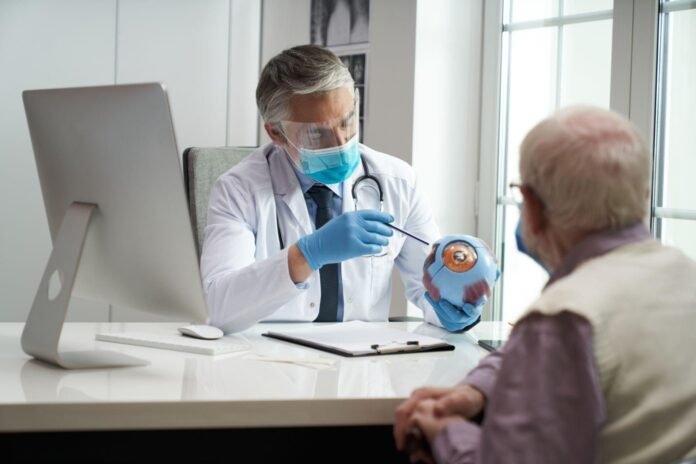Your perception of the world is influenced by your vision. Vision is essential for everyday tasks such as reading, driving, and working with computers. Vision is crucial for watching television or sporting activities.
Most people can see well enough without corrective lenses. Some low vision problems can be corrected with glasses, contact lenses, or surgery. These problems can be caused by myopia (nearsightedness), hyperopia (farsightedness), and astigmatism (an abnormality in the shape or size of the eyes).
There are many ways to improve your sight and keep your eyes healthy. Regular exercise and healthy eating habits are important for your overall health. You will be less likely to develop eye diseases by doing this. Reducing stress levels and avoiding screens can help reduce strain on your eyes.
Vision is essential
Vision is one of your primary senses. It allows you to see the world around you and explore it. Your perception of the world around you and your interaction with it can be influenced by vision.
Vision can have a significant impact on your daily life. It can be hard to see the road signs and obstacles if your vision isn’t clear. This can make it hard to see the road and perform daily tasks. Vision problems can make learning difficult. Vision problems can make reading books and taking notes in class difficult. People with poor vision may have difficulty recognizing faces and participating in social events. Visit a Low Vision Store to find the best low-vision aids.
Vision offers many benefits
For many reasons, vision is important. Good vision is associated with better health, better school performance, better work, and a better quality of life. A person with good vision is less likely be hurt or in an accident.
Common vision issues
Myopia is also known as nearsightedness. Myopia refers to a condition where objects are blurred further away, but you can still see them clearly. Myopia is more common in the early years and becomes worse with age. Myopia can often be caused by myopia. This is caused by the cornea, the transparent part that covers the eyes, growing too large or becoming too curvy. Myopia in families can also cause myopia.
Hyperopia
Hyperopia, also known as farsightedness, is another common problem. Hyperopia is a condition that causes blurred vision near objects and allows you to see distant objects clearly. Hyperopia is more common in childhood and becomes more severe with age. Hyperopia can be caused by the cornea becoming too curled or the eyeball becoming shorter. Hyperopia can also be caused by family history.
Astigmatism
Astigmatism refers to a condition in which the cornea or eyeball curves in a strange way. This can lead to blurred vision at all distances and light entering the eyeball in an abnormal way. Astigmatism can be inherited or developed during childhood.
Tips to improve your vision
A healthy diet is important for good vision. Eat lots of fruits and vegetables. They are rich in antioxidants, which can protect your eyes against any damage.
Healthy eating habits are important. Your chances of developing eye conditions such as cataracts are higher if you smoke. Vision problems could result from excessive alcohol consumption.
Exercise
Your eyesight and overall health can be improved by exercising. Exercise can improve blood circulation and reduce stress. Both can help improve your eyesight. You may also notice an improvement in your vision by doing certain exercises. Palming, a relaxing technique involves placing your hands on the eyes for a brief time. This allows you to relax. It can reduce tension headaches and eye fatigue.
Relaxation and stress management
Stress can affect your vision and overall health. Stress can cause blurred vision and dry eyes. Yoga and meditation are two relaxation techniques that can improve your vision.
Many low-vision aids are available.
Magnifiers are available in many sizes. Magnifiers come in many mounting options: handheld, tripod, or freestanding. You will choose the magnifier that suits your needs best.
Because they are portable and lightweight, magnifiers can be taken with you everywhere. You can choose the magnifier that you require. The magnifiers that are mounted on a stand will be larger and require support from a solid surface. These magnifiers are great for those with limited mobility. These magnifiers offer maximum mobility and security.
A magnifier with illumination will provide the best view.
Electronic aids
Mirrors, lenses LEDs (LEDs), and light-emitting diodes can all be used to magnify or enhance the contrast with electronic aids. These aids can be useful for those with low vision or who need more than magnification.
There are many electronic devices on the market today. Today, there are many electronic devices available. There are many electronic devices on the market today, including Electronic Magnifiers, Electronic Video Magnifiers(EVMs), closed-circuit TV systems (CCTVs), electronic notetakers (DNRs), and Electronic Magnifiers. EVMs are capable of capturing images and then displaying them on a display. CCTV systems can project images onto TV screens or monitors using cameras. EVMs can also be used to make DNRs. EVMs are able to display images on screens and take photos with their cameras. These devices have built-in storage, which allows users to save images for later reference.
When choosing an electronic device, it is important to think about your needs. You should also consider how you intend to use it. An EVM is best if you plan to use it only to read printed material. You may need help in the navigation of your house or office. The CCTV option is a better choice. The DNR DNR system is a great option if you require a system that can do both and more.
Conclusion
There are many things that you can do to improve your vision. Healthy eating habits, regular exercise, and healthy sleep habits can all help improve your vision. There are many ways to improve vision if you have vision problems.
